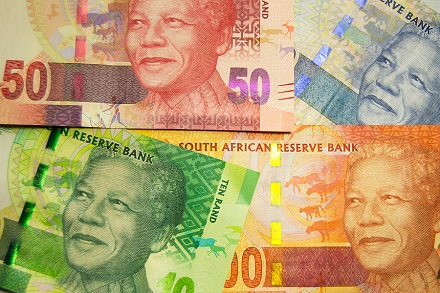The financial costs to a company effected by corruption are very clear, with a myriad of cases over the years – and across the globe – detailing the staggering amounts lost. But while those numbers are jaw-dropping, they pale in comparison to the real costs of corruption being felt globally every year. While the companies directly affected may never recover – financially or reputationally – the roll-on effects of global corruption are equally devastating.
According to the World Economic Forum, the global cost of corruption amounts to $2.6 trillion at least. That’s equivalent to 5% of the global gross domestic product (GDP)! Further to that, the World Bank claims that businesses and individuals around the world are paying out more than $1 trillion in bribes every year. That’s a staggering amount in illicit practices and shows just how embedded corruption is in global practices.
United Nations denounce corruption
In 2019, then Secretary‑General of the United Nations, Antonio Guterres, spoke of the problem of corruption sweeping the globe, pointedly remarking that no country was safe from it – rich or poor, developed or developing, all were in danger of being derailed by corrupt practices in both private and public enterprise. Guterres stressed that corruption at by government officials not only hurt the state finances at an immediate level but also put future foreign investment at risk, further exacerbating the problem. The fall-out, of course, is not purely financial, with government corruption sowing the seeds of discontent amongst the public towards their perception of elected officials.
“Corruption breeds disillusion with Government and governance and is often at the root of political dysfunction and social disunity,” said Guterres at the time. He further noted, that more often than not, it is the poor that suffer most from such practices.
You need only look to the current climate in South Africa to understand just how corrupt practices can poison the morale of a country’s population…
Independent researcher, ŠtefanŠumah,says “corruption inhibits economic growth and affects business operations, employment and investments. It also reduces tax revenue and the effectiveness of various financial assistance programs”.
His study proposed that the impacts of corruption on an economy are far wider than the financial loss suffered by specific parties.
Sumah suggests that in addition to the increase in expenditure required to maintain the necessary development projects undertaken by the state, corruption reduces the availability of funds required for service delivery, reduces tax revenues and increases the cost of doing business through overregulation, bureaucracy and additional administrative measures.
FIFA 2010 World Cup fall out
You need to look no further than the fall-out from the 2010 FIFA Football World Cup where construction companies were sanctioned for collusion by the South African competition commission as an example of this.
It has, of course, long been accepted that corruption is associated with lower GNP per capita, and lower investments and growth rates, but a study by Ernesto Dal Bó, Professor of Business at the University of Berkley, and Martin Rossi, Associate Professor of Political Economy, of the University of San Andres in Argentina, was the first to show that corruption damages nations even further, by making the firms that operate there inefficient.
Using a theoretical model combined with data from 80 electricity distribution firms in Latin America between 1994 and 2001, the study found that in countries where government corruption was higher — as measured by the International Country Risk Guide and Transparency International — firms used significantly more employees to get the same job done. They found that if a country in their sample of Latin American nations with a median corruption level, namely Brazil, were to lower its corruption level to that of the least corrupt country — Costa Rica—its utilities firms would use 7 percent fewer workers. The effect is independent of a country’s general economic or political stability.
South Africa’s SOEs
Again, it is not hard to draw comparisons here with South African State Owned Enterprises (SOEs) such as Eskom and South African Airways, both of which have been at the centre of a slew of alleged corrupt practices and maladministration.
Laws and regulations against corruption exist, but they are largely ineffective due to weak judicial systems and the indifference of governments.
As such, studies have concluded that privately-run businesses need to take control of their own systems to combat corruption as they are key players in international business. It is up to these firms to institute strategies to increase performance and efficiency throughout their organisation and to establish anti-corruption systems.
Without these systems in place, they will continue to run the risk of corruption and the resultant spill-over effect.
Additional Resources
Corporate Insights has published an E-Book aimed at detailing the damage done by undetected corruption. Detailing global cases, the scourge of State Capture in South Africa, and other high-profile cases, it presents you with all the information at hand to better detect and fight corruption within your business.
*Corporate Insights has developed a one-of-a-kind modular system that combines TransUnion’s big data universe with our own artificial intelligence and smart logic algorithms. It enables you to continually monitor, detect, act on, and prevent critical risks, both internally and externally.
The Corporate Insights system will allow you to protect your business from succumbing to the typical pitfalls that lead to corruption. It also comes with a host of additional benefits to ensure your company continues to operate optimally, free of the threat of corruption.
Click here to book a demonstration or call us today to find out how you can transform your business.

